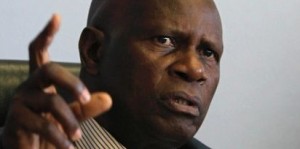Hundreds of companies have shut down since the disputed 2013 elections while more than 25,000 employees have lost their jobs this year alone, according to the Zimbabwe Congress of Trade Unions.
Kapwepwe said re-opening industries and reforming labor laws would act as catalysts in reviving the country’s moribund economy.
Kapwepwe, who is Zambia’s former deputy finance minister, said the IMF is happy with Zimbabwe’s implementation of the staff monitored program although it has some areas of concern.
Meanwhile, Finance Minister Patrick Chinamasa said the government has asked for a meeting with international creditors that include the IMF, World Bank and the African Development Bank on the sidelines of the World Bank annual general meeting in Peru’s capital, Lima, so that Zimbabwe can present its case for fresh funding that it badly needs to inject into the economy.
The minister said the country is battling to clear its debt arrears that now amount to $1.8 billion. Authorities say the country’s debt overhang is hovering around $10 billion.
As a result of Zimbabwe’s failure to clear its debt, Harare is no longer accessing fresh lines of credit from international money lending institutions.
Chinamasa said the economic slowdown in China is also affecting trade between Harare and Beijing.
Despite China’s economic slowdown, Chinamasa said he is expecting the Chinese to invest in Zimbabwe, particularly in infrastructural development projects such as the dualization of the country’s road network.
Post published in: Business


